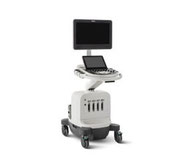- Home
- Why Truffles?
- Blog
- You Can't Run from Vein Disease
- VenaSeal
- Summer is Almost Over
- IDK about Vein Disease
- Vein Treatment Fayetteville
- Sonography to RN Degree Program
- Vein Testing Differences
- Advantage of Vein Treatment Before Knee Surgery
- Poor Medical Advice
- Green Tomatoes for Varicose Veins
- VenaSeal Treatment Atlanta
- Fake News
- Iliac Vein Compression
- Vein Treatment
- DVT
- Pelvic Health
- Sclerotherapy
- leg swelling
- Reviews
- The Vein Specialists
- Vein Treatments
- What is Vein Disease
- Vein Conditions
- Vascular Testing
- Look and Feel Your Best!
- Reviews
- Media
- Contact Us
- Schedule and Appointment
- Free Vein Screening
- Give Us Feedback
- Referral Resources
- Make a Payment
Pain or Tenderness in Legs

Pain or tenderness in legs is not a normal condition. One of the most common causes of pain in the lower extremity is venous insufficiency, a condition in which the veins stretch over time and the one-way valves in the veins fail. This valve failure allows venous blood to flow down the leg due to the effect of gravity. This downward flow of blood causes high pressures to develop in the leg veins. This high pressure (chronic venous hypertension) causes stretching in the vein walls which may cause pain. An inflammatory condition will develop over time around the veins resulting in pain and/or tenderness in the soft tissues of the leg.
Pain or tenderness in legs may also be the result of clotting (thrombosis) in the veins. Superficial thrombophlebitis refers to clotting and inflammatory changes in the veins of the skin and fatty tissues and deep vein thrombosis refers to clotting in veins inside the muscles of the leg. Untreated venous thrombosis may worsen and may result in more pain, destruction of valves in the veins, or clot which migrates (embolizes) to the lungs (pulmonary embolism).
Some of the other causes of leg pain include bone or joint disorders, low back problems such as arthritis or disc degeneration with compression of nerves, neuropathy, infection, arterial insufficiency (blockage of arteries carrying blood to the legs), or trauma. Fibromyalgia often is diagnosed for leg pain which turns out to be due to venous insufficiency.
Too often, patients with soft tissue pain or tenderness of the legs are misdiagnosed if they do not have large, obvious varicose veins of the legs. They may be sent for a venous ultrasound exam at a laboratory which tests only for venous thrombus (clot) and ultrasound testing for venous insufficiency is not performed. A “normal” report after testing only for venous thrombus will miss the diagnosis of venous insufficiency.
If you have soft tissue pain or tenderness of the lower extremities, be sure that you get a complete diagnostic venous color duplex ultrasound exam including testing for venous insufficiency. This is a specialized exam which is best performed in a center dedicated to the evaluation of venous diseases. Contact us for a thorough clinical and ultrasound evaluation!
Did you know?

An ultrasound exam performed to evaluate chronic leg swelling, pain, tenderness, or varicose veins must include detailed testing for venous insufficiency. Testing for deep vein thrombosis (DVT) alone usually misses the diagnosis. Venous insufficiency testing is very specialized and is not performed by most labs performing venous ultrasound testing including in the hospitals in and around Atlanta.
